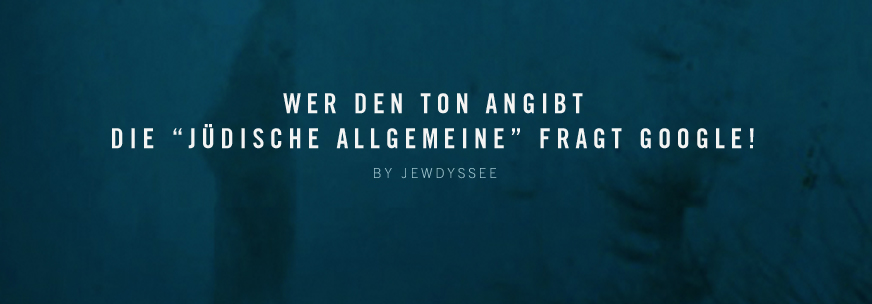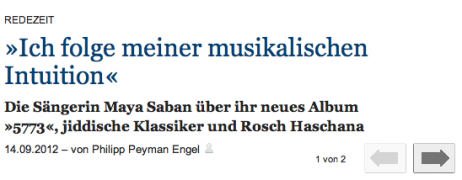Kosher frogs’ legs, or Israeli diplomacy

Recently, every time Israel has come under withering international approbation – usually for its settlement activity or rounds of retaliation against terrorists – the government reverts to the following line: “Loh naim, loh nora,” which translates loosely into: It’s not pleasant, but it’s not awful either.
When we lose a UN vote by 138 to 9, it’s not pleasant, but it’s not terrible either. We always lose UN votes. It could have been 147 to zero. But even then, it would be uncomfortable, but not catastrophic. When England, France, Sweden and Australia summon our ambassadors to read them the riot act, it’s not pleasant, but it’s also not so terrible. They could have recalled their ambassadors from Tel-Aviv, or even expelled our ambassadors. That would have been awful. But you know what? Awful is still OK; awful is not disastrous.
It’s not only international criticism though. Even internal reports that criticize the government’s handling of, say, road accidents, fires, school exam results, are all met with “loh naim, loh nora.”
It’s not great, but it’s not too bad. In other words, it could be worse. In other words, it can always be worse, so this is no big deal. It sure feels like it’s getting worse, but things really are not so bad.
According to this thinking, when things get worse, they still won’t be really bad. When things get worse, and things really seem to be getting worse here, the government will say “it’s bad, but not terrible.”
“Listen, things are really bad, but they’re not catastrophic. OK, ok, things are catastrophic, but they’re not disastrous. Wow, this is a disaster, but you know what, we’ve had it worse, so it’s really not so bad. We overcame Pharaoh, we’ll overcome this too. It’s bad, but it’s not the end of the world. The sky falling is bad? Sure but it could be worse: it could be the end of the world.” READ MORE
Most international jewish song
Few month ago one of my colleagues from Moscow asked me if I could tell him which jewish song is the most international one. Surely at first I said Hava Nagila, but few minutes later I remembered the situation, which happened to me in 2008, when we were traveling in Spain with a couple of friends from Ukraine and Georgia and suddenly heard a street musician playing a jewish melody. One girl, who was traveling with us is a krymchack jewish from Simpheropol, she immediately recognized the melody and shouted “Hey, he plays our Chahlari Chahlari!” (Chahlari means “”my people” in krymchacks language). Me and others also have recognized the melody:) For me it was the sephardic “Fel Shara” and the Shabbath prayer “Yoduha Raionai” and for the others it was the “Terk in Amerika”.
Few month later, in Germany, in the greek restaurant I’ve heard absolutely the same song, but in greek.
I was wondering how can it be that almost all kind of Mediterranean jews and even greeks have the same melody and for all of them this is their traditional song?
By researching on Fel Shara I’ve find out that the original melody comes from Spain and it was cabalistic piyut for Shabbath.
After the expulsion of the jews from Spain in 1492 this piyut traveled all over the Western Europe and the Mediterranean. Some music historians are saying that the Sephardic lyrics of “Fel Shara” were written in the 16th or 17th century in some italian harbor city, because it consists not only a mix of several jewish dialects like Volgare (judeo-italian), Xuadit (jewish-french) and Ladino, but also English and Berber.
Later this song was adopted by the greek as “Apo KsenoTopo” and by the turks as Uskundar.
Also Slavic nations of Balkan have adopted this song.
There is an opened question how “Fel Shara” became a “Terk in Amerika”, because in the refrain the klezmers are using the melody of a krymchack “Haytarma” (haytarmas are folk dances of the crimean tatars, krymchak and karaites), so the official version that the Polish and Russian jews adopted this melody from the Sephardi jews from Greece in the US, seems to be not logical, because there was no migration of the krymchacks to the USA in the 19th or the beginning of the 20th century and in the 18th century krymchacks have lost their contact to the romaniot jews of Greece after the Russian conquest of Crimea.
By checking Fel Shara on youtube I’ve find out that this song became a traditional song in all the Mediterranean countries were there was a big number of Sephardic jews until the WW II.
Here is the list of the names of this song:
Yoduha Rainai/Shabbat Kodesh (piyut)
Fel Shara (Sefardí)
Chahlari, Chahlari (Krymchacki)
Terk in America (Klezmer)
Από ξένο τόπο ([Apo Kseno Topo] – From the foreign land) (Greek)
Üsküdar (Turkish)
Ya Banat Iskandaria (The girl from Alexandria) (Arabic)
A bre, mome crnooko (Hey blackeyed) (Croatia?/Bosnia?)
Pogledayme Anadolko (Look at me Anatalian girl) (Bosnia)
Ruse kose curo imaš (You have blond hair) (Serbia)
Ясен месец веч изгрява ([Yasen mesets’ vech izgryava] Bright moon is shining) (Bulgaria)
Ој девојче, ти Тетовско јаболче ([Oy devoyche, ty tetovs’ko yabolche] Oh girl, you are an apple from Tetovske) (Macedonia)
Oј ти Пацо Дреновчанке [Oy ti patso drenovchanke] (Oh you guy from Drenovchanka)
Menorah Center in Ukraine
Last week the worlds biggest Jewish Community Center “Menorah” was opened in Dnipropetrovsk (Ukraine).
A lot of people are wondering why Dnipropetrovsk and not such famous jewish cities as Odessa, Uman or Kiev?
Most of the jewish and non jewish people don’t know that the jewish history in this city has started long before this city
was founded and thats why it has always been one of the most jewish cities of the eastern Europe.
Explaining Israeli elections through popular TV shows

Person of Interest Aryeh Deri of Shas is Prison Break – making a comeback to the political party he led thirteen years ago after a long stint in prison for financial corruption. But first he has to push current leader Eli Yishai aside.
Yishai, a hardliner on asylum seekers, refugees, and anybody else who is not ultra-Orthodox Jewish, will say and do anything to keep his position, so he’s Lie To Me.
Together, Deri and Yishai are Supernatural; just like the party they’re in.
Olmert, convicted on charges of corruption, is the Sopranos.
Many in the legal and academic institutions in Israel see the return of Deri and Olmert as the season of Criminal Minds.
Current Kadima chief and Leader of the Opposition Shaul Mofaz is Walking Dead, because Kadima is not expected to survive the coming elections. READ MORE
A Jid is a Jid! … eine Goja noch lang keine Schikse.

Shalom liebe Jewdysseeianer…
ick bin die Neue hier und möchte direkt mal mit einem eher ungemütlichen Thema mit Euch auf Tuchfühlung gehen. Nicht nur weil es mir am Herzen liegt, nein, auch weil es so gut in die Festtagszeit passt. Und das nicht, weil es etwa eine süße Geschichte ist. Sondern viel mehr, weil ich einen Denkanstoß für das neue Jahr geben möchte und hoffe, dass dies vielleicht zwischen dem Verzehr von Granatäpfeln, Honig und allen anderen Neujahrsleckereien, an der ein oder anderen Stelle guten Gesprächsstoff bietet.
Vor einigen Wochen fand eine hetzige, Pardon, hitzige Diskussion, in einer Facebook Gruppe namens „Swiss, Germans and Austrians living in Israel“ statt. Diese Plattform ist für Deutschsprechende in Israel gedacht, die sich untereinander austauschen wollen. Bis dahin habe ich persönlich, wie auch mehrere meiner Freunde, diese Plattform sehr häufig und gerne genutzt. Seither nutze ich sie nur noch ungern und sporadisch, das aber nur mal so am Rande.
Es ging in besagter Diskussion, wie in vielen Gruppen, Foren, etc. in letzter Zeit, um das brisante Thema „Kölner Landgericht verbietet Ärzten religiöse Beschneidung“, in unserem Fall also Brit Mila. Die Mehrheit war klar gegen das Verbot, einzelne Stimmen dafür. Doch was als Diskussion begann, wurde nach nur kurzer Zeit eine Art zelebriertes Mobbing und Rausschmiss einer andersdenkenden Nichtjüdin aus der Gruppe (einfachheitshalber nenne ich sie ab jetzt „die Leidtragende“).
Eben diese hat sich in vielerlei Hinsicht höchst unglücklich ausgedrückt und einige Ansichten geäußert, die eigentlich mehr Mitleid, als Empörung in einem hervorrufen müssten….ganz so, als stelle man sich den Elefant im Porzellanladen mal aus der Sicht des Elefanten vor.
Offensichtlich geblendet von schmerzlichem Kummer vertritt die Leidtragende Meinungen, die man ganz klar als grenzwertig bezeichnen kann…
Die chinesische Medizin besagt wohl, dass Männer ohne Vorhaut aggressiver sind. Diese These hat sie auf jüdische und muslimische Männer bezogen, um nur ein Beispiel zu nennen. Dies wurde mit viel Tamtam und noch mehr Plemmplemm als Antisemitismus, Judenhass, etc. ausgelegt. Zudem vertrat die Leidtragende die Meinung, dass die Trennung von Staat und Kirche in Deutschland eine super Sache ist und die religiöse Beschneidung generell verboten werden sollte. Deswegen fand sie das Gerichtsurteil gut und hat das Alles auch mit sehr viel Pathos geäußert.
Als sie dann auf ein mal gleichzeitig von mehreren (jüdischen) Gruppenmitgliedern regelrecht attackiert wurde, entstand ein Gewusel aus Missverständnissen und deplatzierten Äußerungen.
Plötzlich wurde ein YouTube-Video inklusive gehässigem Kommentar gepostet, in dem ein Bericht über die Leidtragende gezeigt wurde. Es war ein Beitrag aus dem israelischen Fernsehen und es wurden auch noch weitere Zeitungsberichte gepostet, u.a. aus der Jüdischen Allgemeinen.
(http://www.juedische-allgemeine.de/article/view/id/5502/highlight/Berit&Kessler)
Kurz zusammengefasst:
Sie kommt vor über zehn Jahren nach Israel, lebt ein Jahr lang in einem Kibbutz und verliebt sich in einen in Israel lebenden Beduinen. Sie zieht irgendwann zu ihm, tritt der Form halber zum Islam über und wird nach islamischem Recht verheiratet. Erst verliebt, dann verbittert. Hat drei Kinder mit ihm. Lebt wie im Gefängnis. Er schlägt und vergewaltigt sie. Sie trennt sich, er entführt zwei der drei Kinder. Sie ist machtlos. Die israelischen Behörden, in diesem Fall ein Scharia-Gericht, sind ihr; egal was sie tut, nicht sonderlich wohlgesonnen. Entschieden wird, dass der Mann das alleinige Sorgerecht für alle drei Kinder erhält und sie das Land nicht mit ihren Kinder verlassen darf. Also lebt sie hier und hofft auf ein Wunder.










